Linda Brewer’s 20/20


website: http://eng102-610.blogspot.tw/2013/09/2020-analysis.html
Raymond Carver
Raymond Clevie Carver, Jr. (May 25, 1938 – August 2, 1988) was an American short-story writer and poet. Carver contributed[citation needed] to the revitalization[citation needed] of the American short story in literature during the 1980s.

Cathedral(stories)
Cathedral is the third major-press collection of short stories by American writer Raymond Carver, published in 1983.
Cathedral was enthusiastically received by critics. In The New York Times book Review, critic Irving Howe wrote:
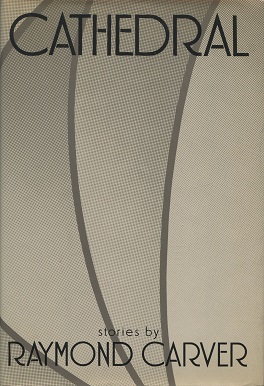

Glossary
A glossary, also known as a vocabulary or clavis, is an alphabetical list of terms in a particular domain of knowledge with the definitions for those terms. Traditionally, a glossary appears at the end of a book and includes terms within that book that are either newly introduced, uncommon, or specialized. While glossaries are most commonly associated with non-fiction books, in some cases, fiction novels may come with a glossary for unfamiliar terms.

A Glossary of Islamic Legal Terminology
Fiction
Fiction is the classification for any story or similar work derived from imagination—in other words, not based strictly on history or fact. Fiction can be expressed in a variety of formats, including writings, live performances, films, television programs, animations, video games, and role-playing games, though the term originally and most commonly refers to the narrative forms of literature (see literary fiction), including the novel, novella, short story, and play. Fiction does not refer to a specific mode or genre, unless used in its narrowest sense to mean a "literary narrative". Fiction is traditionally regarded as the opposite of non-fiction, whose creators assume responsibility for presenting only the historical and factual truth; however, the distinction between fiction and non-fiction can be blurred, for example, in postmodern literature.
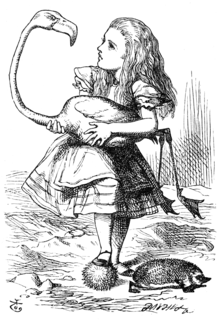

An illustration from Lewis Carroll's Alice's Adventures in Wonderland, depicting the fictional protagonist, Alice, playing a fantastical game of croquet.
Virtual reality
Virtual reality (VR) typically refers to computer technologies that use virtual reality headsets to generate the realistic images, sounds and other sensations that replicate a real environment or create an imaginary setting. VR also simulates a user's physical presence in this environment. VR has been defined as "a realistic and immersive simulation of a three-dimensional 360-degree environment, created using interactive software and hardware, and experienced or controlled by movement of the body" or as an "immersive, interactive experience generated by a computer".
Oedipus complex
In psychoanalysis, the Oedipus complex (or, less commonly, Oedipal complex) is a child's desire, that the mind keeps in the unconscious via dynamic repression, to have sexual relations with the parent of the opposite sex (i.e. males attracted to their mothers).
The Oedipus complex occurs in the third—phallic stage (ages 3–6)—of the five psychosexual development stages: (i) the oral, (ii) the anal, (iii) the phallic, (iv) the latent, and (v) the genital—in which the source of libidinal pleasure is in a different erogenous zone of the infant's body. The Oedipal complex originally refers to the sexual desire of a son for his mother and does not have to be reciprocated.
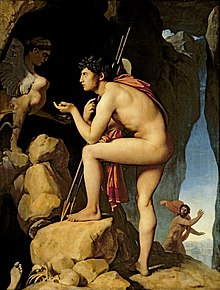
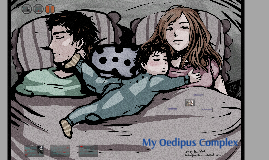
Virgil
Publius Vergilius Maro (Classical Latin: [ˈpuː.blɪ.ʊs wɛrˈɡɪ.lɪ.ʊs ˈma.roː]; traditional dates October 15, 70 BC – September 21, 19 BC), usually called Virgil or Vergil /ˈvɜːrdʒᵻl/ in English, was an ancient Roman poet of the Augustan period. He wrote three of the most famous poems in Latin literature, the Eclogues (or Bucolics), the Georgics, and the epic Aeneid. A number of minor poems, collected in the Appendix Vergiliana, are sometimes attributed to him.
Prose romance
Prose is usually fiction. Romance usually has a love plot, but in earlier eras the romance genre was not necessarily about love, because it meant something different. The purpose is the same as other fictional literature: to entertain and sometimes provide deeper meanings and messages. Examples are Pride and Prejudice or Jane Eyre.





website: http://study.com/academy/lesson/introduction-to-romantic-prose-overview-of-authors-and- works.html
Stock character
A stock character is a stereotypical person whom audiences recognize from frequent recurrences in a particular literary tradition. Stock characters are archetypal characters distinguished by their flatness. As a result, they tend to be easy targets for parody and to be criticized as clichés. The presence of a particular array of stock characters is a key component of many genres. The point of the stock character is to move the story along.
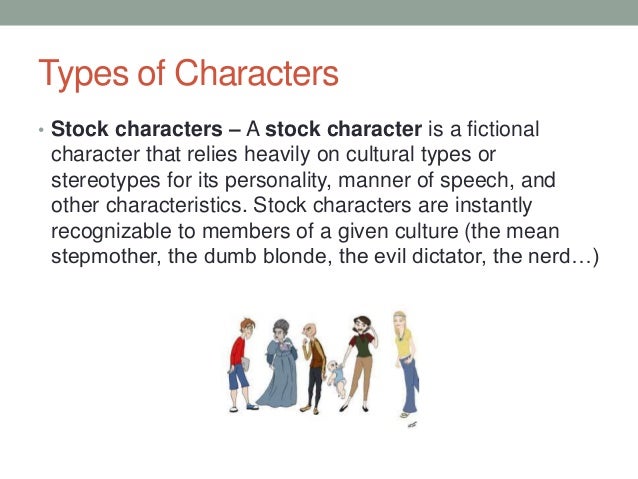
沒有留言:
張貼留言